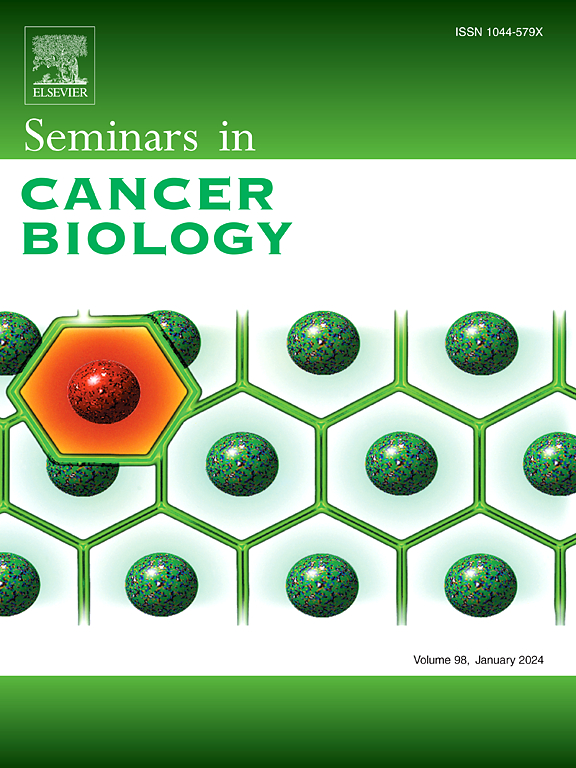The exposome and pancreatic cancer, lifestyle and environmental risk factors for PDAC
IF 12.1
1区 医学
Q1 ONCOLOGY
引用次数: 0
Abstract
Pancreatic cancer (PC), particularly pancreatic ductal adenocarcinoma (PDAC), is a significant global health issue with high mortality rates. PDAC, though only 3 % of cancer diagnoses, causes 7 % of cancer deaths due to its severity and asymptomatic early stages. Risk factors include lifestyle choices, environmental exposures, and genetic predispositions. Conditions like new-onset type 2 diabetes and chronic pancreatitis also contribute significantly. Modifiable risk factors include smoking, alcohol consumption, non-alcoholic fatty pancreatic disease (NAFPD), and obesity. Smoking and heavy alcohol consumption increase PC risk, while NAFPD and obesity, particularly central adiposity, contribute through chronic inflammation and insulin resistance. Refined sugar and sugar-sweetened beverages (SSBs) are also linked to increased PC risk, especially among younger individuals. Hormonal treatments and medications like statins, aspirin, and metformin have mixed results on PC risk, with some showing protective effects. The gut microbiome influences PC through the gut-pancreas axis, with disruptions leading to inflammation and carcinogenesis. Exposure to toxic substances, including heavy metals and chemicals, is associated with increased PC risk. Glycome changes, such as abnormal glycosylation patterns, are significant in PDAC development and offer potential for early diagnosis. Interactions between environmental and genetic factors are crucial in PDAC susceptibility. Genome-wide association studies (GWAS) have identified several single nucleotide polymorphisms (SNPs) linked to PDAC, but gene-environment interactions remain largely unexplored. Future research should focus on polygenic risk scores (PRS) and large-scale studies to better understand these interactions and their impact on PDAC risk.
暴露与胰腺癌、生活方式和环境风险因素的关系
胰腺癌(PC),特别是胰腺导管腺癌(PDAC),是一个具有高死亡率的重大全球健康问题。PDAC虽然只占癌症诊断的3% %,但由于其严重程度和无症状的早期阶段,导致7% %的癌症死亡。风险因素包括生活方式选择、环境暴露和遗传倾向。新发2型糖尿病和慢性胰腺炎等疾病也有显著影响。可改变的危险因素包括吸烟、饮酒、非酒精性脂肪性胰腺疾病(NAFPD)和肥胖。吸烟和大量饮酒增加PC的风险,而NAFPD和肥胖,特别是中心性肥胖,通过慢性炎症和胰岛素抵抗来促进。精制糖和含糖饮料(SSBs)也与PC风险增加有关,尤其是在年轻人中。激素治疗和他汀类药物、阿司匹林和二甲双胍等药物对PC风险的影响好坏参半,其中一些显示出保护作用。肠道微生物组通过肠-胰轴影响PC,破坏导致炎症和致癌。接触有毒物质,包括重金属和化学品,与PC风险增加有关。糖化改变,如异常的糖基化模式,在PDAC的发展中是重要的,并提供了早期诊断的潜力。环境和遗传因素之间的相互作用是影响PDAC易感性的关键因素。全基因组关联研究(GWAS)已经确定了几个与PDAC相关的单核苷酸多态性(snp),但基因与环境的相互作用在很大程度上仍未被探索。未来的研究应侧重于多基因风险评分(PRS)和大规模研究,以更好地了解这些相互作用及其对PDAC风险的影响。
本文章由计算机程序翻译,如有差异,请以英文原文为准。
求助全文
约1分钟内获得全文
求助全文
来源期刊

Seminars in cancer biology
医学-肿瘤学
CiteScore
26.80
自引率
4.10%
发文量
347
审稿时长
15.1 weeks
期刊介绍:
Seminars in Cancer Biology (YSCBI) is a specialized review journal that focuses on the field of molecular oncology. Its primary objective is to keep scientists up-to-date with the latest developments in this field.
The journal adopts a thematic approach, dedicating each issue to an important topic of interest to cancer biologists. These topics cover a range of research areas, including the underlying genetic and molecular causes of cellular transformation and cancer, as well as the molecular basis of potential therapies.
To ensure the highest quality and expertise, every issue is supervised by a guest editor or editors who are internationally recognized experts in the respective field. Each issue features approximately eight to twelve authoritative invited reviews that cover various aspects of the chosen subject area.
The ultimate goal of each issue of YSCBI is to offer a cohesive, easily comprehensible, and engaging overview of the selected topic. The journal strives to provide scientists with a coordinated and lively examination of the latest developments in the field of molecular oncology.
 求助内容:
求助内容: 应助结果提醒方式:
应助结果提醒方式:


